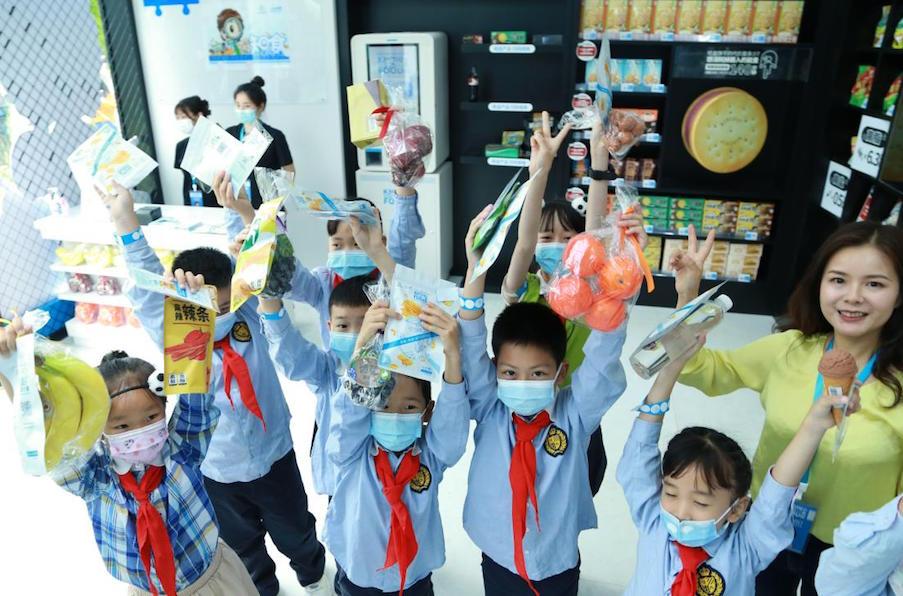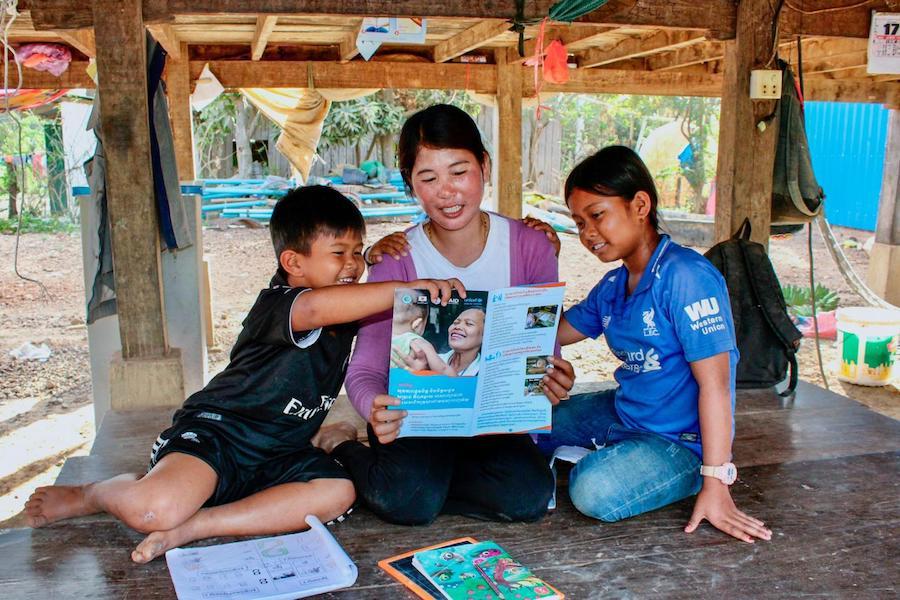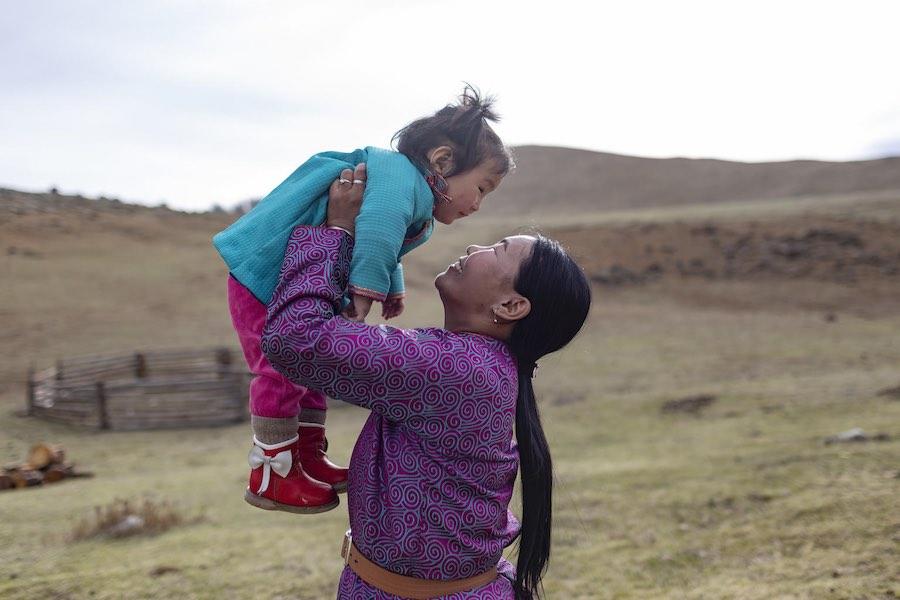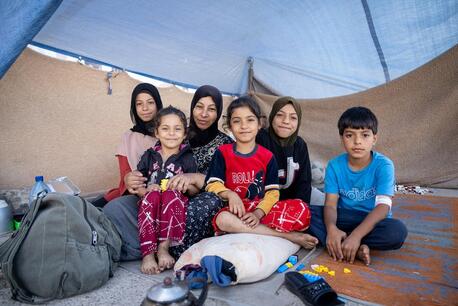
Make This Lunar New Year Happier for Every Child
The Lunar New Year is a time for families to come together and look ahead to the coming year.
Called Spring Festival in China, it is also a time when parents, grandparents, uncles and aunts pass on traditions, memories and monetary gifts to the children of the next generation.
These cash gifts — hongbao (lucky money) in Chinese — come in red envelopes and are especially fun for kids because they get to spend the money on whatever they like.
Back in Imperial China, when 1 in 4 children died before their first birthday, the custom had more serious implications. Legend had it that giving children lucky money was a way to ward off the evil spirits believed to make children sick.
Whenever and wherever there are children in need, UNICEF is there
Today, parents in China and across Asia no longer have to leave their children's survival to chance. With donor support, and alongside many partners, UNICEF has helped strengthen primary health care systems around the world helping to reduce the global under-5 mortality rate by 59 percent since 1990.
But there is still much more work to be done.
This Lunar New Year, UNICEF USA is asking supporters to consider children in need — the kids UNICEF depends on donor support to reach every day, year in and year out, with lifesaving and life-sustaining services.
By making a lucky money gift to children in need, you can help them reach their full potential. Here are some of the ways UNICEF leverages donor support to drive impact for children.

Improving child and adolescent nutrition
Healthy eating is an important part of a happy childhood, but over 15 million children in China are not getting the nutrients they need, and obesity rates have spiked.
UNICEF's "Know Your Food" initiative, launched at a convenient store in 2022 in Chengdu, Sichuan Province, is helping to increase nutrition literacy to help children and young people make informed decisions about their diet.
The store is filled with popular, ultra-processed, prepackaged foods, but it doesn't sell snacks or drinks; instead, it offers information on the amount of fat, sugar and salt contained in each product. Child "shoppers" have fun learning about the food they eat by playing games, working puzzles shaped like potato chips and scanning grocery items to get a receipt that lists nutritional content.

Supporting parents and caregivers to help children thrive
When COVID-19 pandemic hit, 36-year-old Van Veuy, above with her children, was a migrant worker in Thailand, one of tens of thousands of Cambodians working overseas to earn more than they could at home. When her employer closed, Veuy returned to Cambodia so worried about the future that she sometimes resorted to “negative ways of working with the children, old bad habits and bad attitudes.”
Struggling to support her children while having to manage their at-home learning made matters worse. That's when Veuy enrolled in a UNICEF-supported parent training program, and the counseling sessions helped her cope.
“I learned more about my roles and responsibilities as a parent,” she explains. She took more time to listen to her children, play with them and fill in as teacher — something her daughter, Niza, above right, appreciated: “My mother always finds time to help me with my homework."

Empowering youth advocates around mental health
Stigma around mental health challenges and a chronic lack of funding for mental health support programs and services have been big problems, particularly in low-income countries. Tran Quynh Giang, a Vietnamese student who uses they/them pronouns, struggled with panic attacks in their early teens, and teachers were ill-equipped to help.
With UNICEF support, Giang became a youth advocate, speaking out about the need for school-based mental health services, including teacher training to identify students in need and connect them with the right resources.
"I want to see schools where mental health issues are looked at just as any other physical challenges," Giang says. "And there will no longer be barriers, stigma or discrimination to stop us."

Ensuring access to quality health care for mothers and babies
In Mongolia, newborn mortality rates are going down, thanks in part to UNICEF-supported health care for moms like Delgermurun Tsolomon and her baby, Sugarmaa.
Sugarmaa was born on the Lunar New Year, and since then, she's thrived under the watchful eye of her doctor and the high-quality care she and other children in the region now receive.
UNICEF helped make antibiotics available to those who need them, health workers' training has improved and government subsidies help families afford health insurance — all of which give Tsolomon high hopes for her baby and all her other children's future: “I dream that they will become well-educated and knowledgeable people and that they will complete their education.”
Help UNICEF continue delivering for children and families. Your support can help make 2024, the Year of the Dragon, a year of hope. Donate today.
HOW TO HELP
There are many ways to make a difference
War, famine, poverty, natural disasters — threats to the world's children keep coming. But UNICEF won't stop working to keep children healthy and safe.
UNICEF works in over 190 countries and territories — more places than any other children's organization. UNICEF has the world's largest humanitarian warehouse and, when disaster strikes, can get supplies almost anywhere within 72 hours. Constantly innovating, always advocating for a better world for children, UNICEF works to ensure that every child can grow up healthy, educated, protected and respected.
Would you like to help give all children the opportunity to reach their full potential? There are many ways to get involved.





